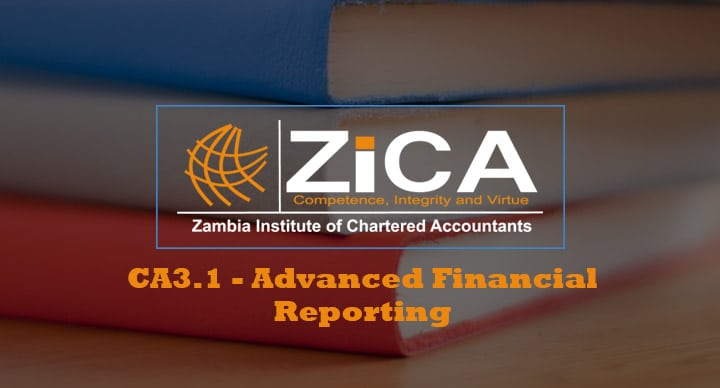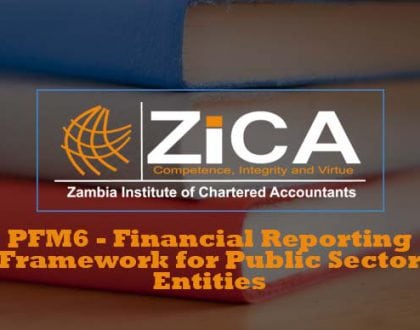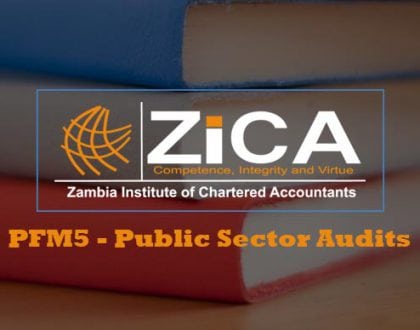CA3.1 – Advanced Financial Reporting
No access plans exist.

Course Features
Course Details
CA3.1-Advanced Financial Reporting
On completion of this module, candidates will reach a competency sufficient to be able to:- Apply accounting principles to prepare financial statements, notes and extracts that comply with generally accepted accounting practice
- Evaluate the position, performance and prospects of entities from their financial statements and other non-financial information
- Explain ethical issues arising in preparing financial statements and other information and recommend appropriate course of action
| Syllabus topics | Weighting (%) | LO |
| Select and communicate appropriate accounting policies | 20 | 1 and 4 |
| Prepare financial statements using IFRS and other relevant standards | 50 | 2 and 4 |
| Analyse, interpret and evaluate financial and non-financial information of entities | 15 | 3 |
| Respond ethically to issues arising in the preparation and use of financial and non-financial information of entities | 15 | 4 |
Learning outcomes
- LO1: Evaluate appropriate accounting policies
- LO2: Prepare financial statements, notes and extracts for both single entities and for groups that comply with generally accepted accounting practice
- LO3: Evaluate entity position, performance and prospects using a range of financial and other data
- LO4: Assess ethical issues and appropriate ethical responses
- Selecting, presenting and evaluating suitable accounting policies: LO1, 4
- Advise upon suitable accounting policies based on a business scenario under local and international requirements for private sector entities including single and consolidated financial statements
- Evaluate how alternative choices of revenue recognition, asset and liability recognition and measurement can affect the understanding of the performance, position and prospects of an entity whether in the private or public sector or when presenting consolidated or single entity financial statements
- Explain to a chosen user the application of IFRS and local requirements for a private or public sector entity
- Assess the choice of accounting treatments that may be adopted based on a given scenario explaining how theн may affect a users’ understanding of a business
- Explain current issues arising in the development of generally accepted accounting practice at a local and international level
- Evaluate the ethical and professional considerations when undertaking work, giving advice on financial accounting and reporting issues that may give rise to ethical problems in business and reporting scenarios
- Preparing and reporting information for financial statements and notes: LO2, 4
- Prepare financial statements of a single entity undertaking a variety of transactions on the basis of chosen accounting policies and in accordance with IFRS and local regulations
- Identify from a given scenario a subsidiary, associate or joint venture according to international standards and local regulation
- Calculate from given data and information the amounts to be included in an entity’s consolidated financial statements arising from existing, new or discontinuing activities or interests in subsidiaries, associates or joint ventures in accordance with IFRS and local regulations
- Prepare extracts from the financial statements of an entity preparing consolidated financial statements undertaking a variety of transactions on the basis of chosen accounting policies and in accordance with IFRS and local regulations
- Explain with examples the additional information that may be included in annual reports beyond financial statements in accordance with international best practice and local requirements including management reports, risk information, governance reports, financial summaries, key performance indicators and highlights.
- Interpretation and evaluation of financial information and disclosures: LO3
- Calculate suitable performance, position and prospect measures using key indicators, financial statement ratios, stock market ratios, comparisons, trend analyses and other representations of relationships that support a meaningful financial and business analysis of a private or public sector entity
- Comment upon limitations of analysis
- Draw conclusions and report on the analysis undertaken from a business perspective. Technical knowledge required – Accounting Standards The technical appendix details the depth of treatment of required technical knowledge and the progression of competence over the levels in the qualification.
This course does not have any sections.





